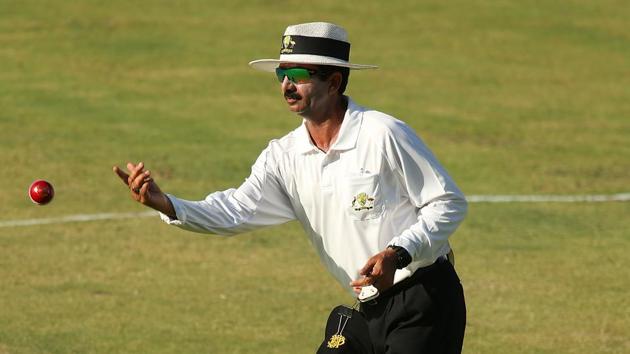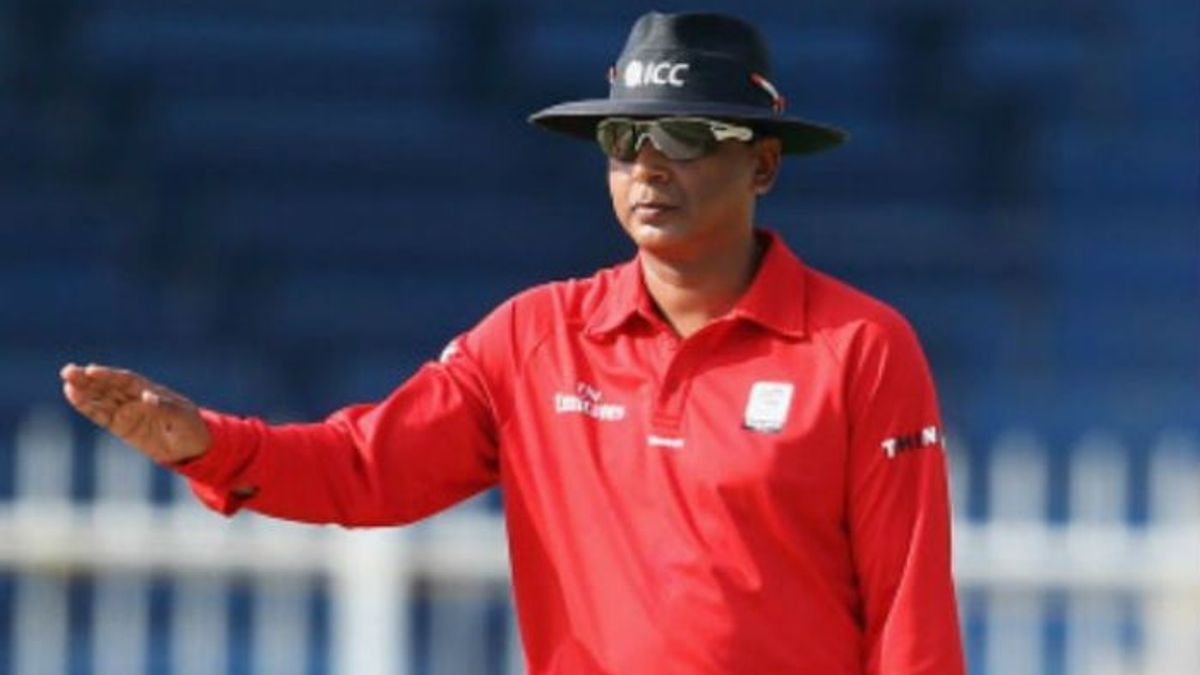To become an umpire in cricket in India, you must undergo training and certification programs offered by recognized cricket boards. These programs provide the necessary knowledge and skills required for officiating cricket matches.
Umpiring in cricket involves making crucial decisions during matches, ensuring fair play, and upholding the laws of the game. Aspiring umpires need to display a strong understanding of the rules and regulations of cricket, excellent decision-making abilities, and a keen eye for detail.
By following the proper training and certification process, individuals can embark on a rewarding career as a cricket umpire, contributing to the integrity and smooth conduct of cricket matches.

Credit: www.hindustantimes.com
Requirements To Become An Umpire
For those who have a passion for the game of cricket and a keen eye for detail, becoming an umpire can be a fulfilling and exciting career path. However, becoming an umpire in cricket in India requires meeting specific requirements and qualifications.
Age And Education
To become an umpire in cricket, the minimum age requirement is 18 years. In terms of education, there are no formal educational requirements. However, having a good understanding of the laws and rules of the game is essential.
Cricket Knowledge
Having a deep understanding of the nuances of cricket is imperative for becoming an umpire. Potential umpires need to have a strong grasp of the rules, regulations, and intricacies of the game. This requires a comprehensive knowledge of field placements, dismissal types, and cricket terminology.

Credit: www.hindustantimes.com
Umpiring Courses
Umpiring Courses: Are you passionate about cricket and dream of being right in the heart of the action? Umpiring could be your calling. In India, there are structured umpiring courses that can help you kickstart your journey towards becoming a cricket umpire.
Introduction To Umpiring
Cricket umpiring involves a deep understanding of the laws, rules, and nuances of the game. It requires focus, quick decision-making, and impeccable judgment to ensure fair play.
Laws Of Cricket
Understanding the laws of cricket is fundamental for any aspiring umpire. From LBW to wides, knowing the rules inside out is crucial to officiating matches effectively.
Match Management
Match management is more than just making decisions on the field. It involves communication with players, coaches, and fellow umpires, maintaining control of the game, and ensuring a smooth and fair contest for all.
Practical Training
One of the key aspects of becoming an umpire in cricket is practical training, which involves hands-on experience in officiating matches. Practical training plays a crucial role in developing the skills and knowledge required to excel as an umpire in the sport.
Observe Matches
- Attend live cricket matches to observe how umpires make decisions on the field.
- Focus on the positioning, signals, and communication of the umpires during the game.
Assist Senior Umpires
- Learn by shadowing experienced umpires and assisting them during matches.
- Seek feedback and guidance from senior umpires to improve your officiating skills.
Gain Field Experience
- Get hands-on experience by officiating matches at local or club levels.
- Develop your decision-making abilities and confidence on the field.
Umpiring Exams And Certifications
Becoming an umpire in cricket requires a thorough understanding of the game and a commitment to fair play and sportsmanship. Umpiring exams and certifications are crucial steps in the process to becoming a professional cricket umpire. In India, the process involves written and practical exams, as well as obtaining level certifications. Let’s explore each of these important aspects in detail:
Written Exam
The written exam is an essential component of the umpiring certification process. It typically assesses aspirants’ knowledge of the rules and regulations of cricket. Candidates must be well-versed in the laws of the game, including the interpretations and application of the rules in various game situations. Studying the official rulebook is essential for success in the written exam. Be sure to focus on areas such as LBW decisions, no-balls, and dismissals to prepare for this assessment.
Practical Exam
The practical exam is an opportunity for aspiring umpires to showcase their ability to make accurate decisions on the field. This evaluation often involves officiating in simulated match scenarios, where candidates are expected to demonstrate their understanding of on-field protocols and decision-making processes. Developing a keen eye for detail and honing the ability to make swift, confident judgments are key areas of focus for the practical examination.
Level Certifications
After successfully completing the written and practical exams, individuals can obtain different level certifications, ranging from entry-level to elite levels. These certifications signify a candidate’s proficiency and readiness to officiate at various tiers of cricket matches. The certifications may include accompanying seminars and workshops to further enhance an umpire’s skills and knowledge. Advancing through the levels demonstrates a commitment to continual improvement and expertise in umpiring.
Opportunities And Career Path
Becoming an umpire in cricket in India can open up exciting opportunities for a successful career path. With the right training and knowledge, individuals can embark on a fulfilling journey in the world of cricket officiating. Explore the steps and requirements to kickstart your umpiring career in India.
Local And State Leagues
Becoming an umpire in cricket opens up a world of opportunities and a promising career path. One of the first steps to embark on this journey is to seek opportunities in local and state leagues. These leagues serve as a stepping stone for aspiring umpires, allowing them to gain practical experience and develop their skills.
Local and state leagues provide the following benefits:
- Opportunity to observe and learn from experienced umpires on-field
- Exposure to different levels of cricket, including junior and senior matches
- Chances to officiate matches in various formats, such as T20, One Day, and Multi-day games
- Building a network with players, coaches, and cricket associations
In order to get involved in local and state leagues, one can start by contacting cricket clubs or associations in their region. It is important to express your interest and passion for the role, as this can often lead to opportunities for training and mentoring.
Bcci Tournaments
The Board of Control for Cricket in India (BCCI) organizes various tournaments at different levels, ranging from district and zonal competitions to national championships. Umpiring in BCCI tournaments is an excellent opportunity for individuals aspiring to establish their career as an umpire in cricket.
Here are some key aspects of officiating BCCI tournaments:
- Clear pathway towards professional umpiring
- Gaining exposure to competitive cricket and high-profile matches
- Enhancing decision-making skills in pressure situations
- Possibility of being noticed by officials and selectors from higher levels
Umpires looking to get involved in BCCI tournaments can explore avenues such as registering with local cricket associations affiliated with the BCCI, attending umpiring workshops and seminars, and staying updated with the official announcements regarding the selection process.
International Umpiring
One of the ultimate goals for many cricket umpires is to officiate at the international level. Representing your country as an umpire in international matches is a great achievement and offers numerous opportunities for growth and recognition.
Here’s how you can aim for international umpiring:
- Pursue advanced umpiring courses and certifications
- Gain experience by officiating in domestic first-class and international matches
- Develop a strong grasp of the laws of cricket and uphold fairness in decision-making
- Build a reputation for integrity, communication, and professionalism
Umpires with the necessary skills and experience may be eligible to participate in programs and exchange initiatives organized by international cricket boards for further exposure and development.

Credit: cricketresolved.com
Frequently Asked Questions For How To Become An Umpire In Cricket In India
Can Anyone Become An Umpire In Cricket In India?
Yes, anyone with a good understanding of the game, knowledge of the rules, and the ability to make quick and fair decisions can become an umpire in cricket in India. However, it is recommended to attend umpiring courses and gain experience at lower levels before progressing to higher levels of umpiring.
What Qualifications Are Required To Become A Cricket Umpire In India?
To become a cricket umpire in India, one does not require formal qualifications. However, it is important to have a deep knowledge of the game, good understanding of the rules, and the ability to make unbiased decisions. Attending umpiring courses and gaining practical experience is highly recommended.
How To Start A Career As An Umpire In Cricket In India?
To start a career as an umpire in cricket in India, you can begin by joining local cricket associations and umpiring clubs. Attending umpiring courses and workshops will help you enhance your skills and knowledge. It is also important to gain practical experience by officiating in local matches and tournaments.
Is There Any Age Limit To Become An Umpire In Cricket?
There is no specific age limit to become an umpire in cricket in India. However, it is recommended to have a good understanding of the game and sufficient experience before taking up umpiring responsibilities at higher levels.
Conclusion
Becoming an umpire in cricket in India involves a clear understanding of the game’s rules and regulations. By gaining practical experience through local matches and obtaining the necessary qualifications, aspiring umpires can pave their way into the world of officiating cricket games.
Joining certified training programs will significantly enhance your knowledge and expertise in this field.
